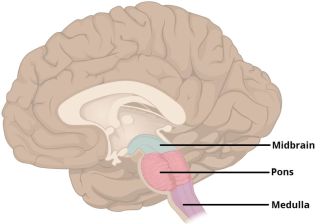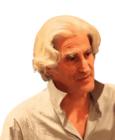Dopamine
Drugs, Dopamine, and Free Will
Understanding substance abuse and choice.
Posted November 10, 2023 Reviewed by Tyler Woods
Key points
- Addiction deprives one of free will.
- Substace abuse hijacks control of certain key neurotransmitters, dopamine in particular.
- Dopamine is a neurotransmitter of prediction—and thus of one's sense of the future.
According to Janice Joplin, free will, like freedom, “is just another word for nothin’ left to lose.”
According to Sigmund Freud, free will is when “the daemonic forces of the repetition compulsion” relax their control over the pleasure principle (Beyond the Pleasure Principle).
According to Google, free will is the capacity “to make choices that are not determined by prior choices or divine intervention.”
So there are plenty of definitions of the term. Thinking about it, I realized that I had no understanding of free will. I was confused. When confused, I turn to biology whenever I can.
Free Will and the Brain
If there is such a thing as a biology of free will, its essence lies in the neurotransmitter dopamine. From its primary locus in the midbrain, dopaminergic neurons send axons to virtually every part of the brain.

This release of dopamine was thought to respond to the experience of pleasure. But that has been proven wrong. The release of dopamine does not respond to the experience of pleasure. The release of dopamine responds to the expectation of pleasure. Thus, the release of dopamine acts as a prediction—a prediction that something good is likely to happen—and so all associated behaviors, actions, and memories should be noted and reinforced so that these pathways can be remembered and potentially repeated.
The fluctuation in the level of dopamine therefore acts as a guide to future behavior.
If something good unexpectedly happens, the level of dopamine release rises, indicating that one should take note. If the delivery of something good is expected but fails to arrive, then dopamine release goes down, indicating that one should turn one’s attention elsewhere. If something good is expected, and indeed something good materializes, then dopamine release stays constant, indicating that new learning is not all that necessary—the path one had been on and the prediction as to where it would lead were both sound.
Thus, the level of dopamine—as it rises, falls, remains the same—is making a biologic statement about the value of an anticipated event.
These predictions are physiologic, that is, they reflect the organism’s expectation about a forthcoming event. Outcomes that prove to be constructive are valued and reinforced. Outcomes that prove to be unproductive are devalued and discarded. Fluctuations in dopamine transmission would encourage or discourage subsequent focus and choice based on such learning. This physiologic response is part of a biologic equation.
Addiction
Addiction changes the equation.
Substance abuse, the most powerful addiction, comes about as the final common pathway of pharmacologic manipulation of certain key neurotransmitters, dopamine being critical. A pharmacologic dose, compared to the physiologic, is overwhelming.
Cocaine, for example, forces a massive, pharmacologic rise in the level of dopamine. After taking cocaine, levels of dopamine go up, no matter the consequences of the behavior—good, bad, or indifferent.
If, as a result of the abuse of cocaine, one loses one’s job, one’s friends, one’s marriage, if one loses all hope—one can snort another line and the level of dopamine transmission will go up. In this way, one can force a positive prediction that has nothing to do with past results. One can force a positive state of mind. The pharmacologic dose can force the prediction that "this will lead to something good," no matter where it goes.
Substance abuse takes control of dopamine, shifting its control from the physiologic to the pharmacologic. The level of dopamine is no longer acting as a predictor based on the experience of learning, memory, or outcome. It is, instead, creating a prediction based on pharmacologic manipulation.
This power of dopamine to predict and guide can be maintained along either physiologically or pharmacologically. With rising levels of dopamine transmission, one feels like one is making a choice for the better, no matter whether the rising level of dopamine has been advanced by prior experience and a positive outcome or by snoring more cocaine. They both raise the level of dopamine. They both leave one feeling strong and confident. They both leave one feeling that one has made a choice for the good.
They both leave one feeling alive, though, in reality, the disparities on one's health are stark.


